You cannot be serious! Wow..... I have a moral turpitude deal in mine......which basically covers everything....
Announcement
Collapse
No announcement yet.
Miscellaneous And Off Topic Subjects
Collapse
X
-
Speechless; this is why I try to avoid the "news" at all costs.Originally posted by entropy View PostThe State of Pennsylvania will continue to pay Jerry Sandusky $59,000 per year pension, as pedophilia/child sexual assault is not one of the two dozen crimes that disqualifies a pennsylvanian from receiving a state pension.
Murder, hurricanes, rape... now here's Tom with the weather!Repugnant is the creature who would squander the ability to lift an eye to heaven, conscious of his fleeting time here.
- Top
Comment
-
Florida lifeguard says he's been offered his job back
By John Zarrella and Lateef Mungin, CNN
updated 8:44 AM EDT, Fri July 6, 2012
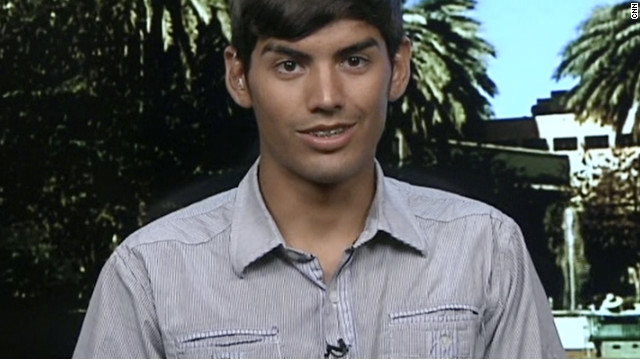
STORY HIGHLIGHTS
- NEW: Company says lifeguard was trying to do the right thing
- Lifeguard says he has been offered his job back, but doesn't plan to return
- To save a man, Lopez went outside the area that is under his company's protection zone
- "We have liability issues ... What he did was his own decision," the company says
(CNN) -- The south Florida lifeguard fired for leaving his post so he could save a swimmer outside his coverage zone said Thursday he has been offered his job back.
But Tomas Lopez told CNN he does not plan to return to work.
"It's another chapter in my life closed and I am just going to continue to get my schooling finished and get on with my career," Lopez told CNN.
The 21-year-old said his phone has been ringing off the hook with journalists trying to get his side of the story.
Jeff Ellis Management, the company for which Lopez worked, had said lifeguards cannot go beyond the perimeter of the beach they are responsible for overseeing.
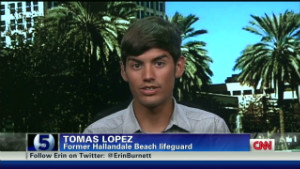 Fired lifeguard: It was instinct
Fired lifeguard: It was instinct
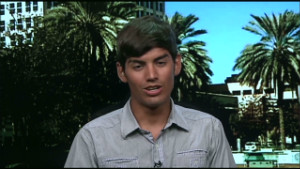 Fired lifeguard declines job offer
Fired lifeguard declines job offer
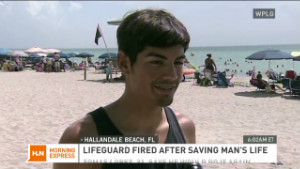 Lifeguard fired after helping save a life
Lifeguard fired after helping save a life
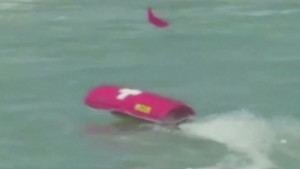 Robot lifeguards come to the east coast
Robot lifeguards come to the east coast
Jeff Ellis told CNN's "Erin Burnett OutFront" on Thursday evening that he didn't approve of the decision to fire Lopez.
"Clearly, he should not have been terminated for what had occurred," Ellis said. "I know that he has tried to do the right thing."
Three other lifeguards quit in protest and two others were dismissed after saying they would have acted as Lopez did.
"They told us we would be liabilities and we had to be let go," lifeguard Travis Madrid told CNN.
Ellis told CNN the company has offered to bring back those who were let go.
Ellis told the Sun Sentinel newspaper he confirmed that no area of the beach was left unattended while Lopez assisted the swimmer.
The incident occurred Monday at Hallandale Beach in on Florida's Atlantic coast, north of Miami.
Lifeguard sues New York over revealing swimsuit rule
A beachgoer rushed to Lopez's lifeguard station to alert him to a man who was drowning.
The man was some 1,500 feet outside the company's protection zone in an area where signs warn visitors to swim at their own risk, a supervisor with the company told CNN affiliate WPTV.
Even though he knew it was outside the company protection zone, Lopez ran into the ocean toward the struggling man and pulled him ashore. The man, he said, had turned blue.
"He was having a lot of trouble breathing," Lopez said.
A nurse at the beach tended to the victim until emergency medics arrived and rushed him to a hospital.
The man was in good condition Thursday, according to Aventura Hospital.
Lifeguard Szilard Janko said he guarded Lopez's zone while the latter aided the swimmer.
"They let him go after he performed the rescue," Janko said. "They fired him basically on the spot."
After the near-drowning, Lopez said he was asked by his supervisor to complete an incident report.
15 things your lifeguard won't tell you
"At that point I knew I was going to be fired. I knew I had broken the rule," Lopez said. "In those cases, we are supposed to call 911 and hope they get there in time."
Did Lopez deserve to be fired? Share your thoughts
Company supervisor Susan Ellis previously told WPTV that Lopez was let go for violating company policy.
"We have liability issues and can't go out of the protected area," she told the TV station. "What he did was his own decision. He knew the company rules and did what he thought he needed to do."
Lopez said he started the $8.25-an-hour job four months ago and had hoped to continue working there when he goes to Broward College in the fall.
"I have no doubts I did the right thing," he said Thursday. "I believe I did what was right, and that if someone needs help you're going to go help them, regardless if you're a lifeguard or not."Benny Blades~"If you break down this team man for man, we have talent to compare with any team."
- Top
Comment
-
Report to shed light on PSU scandal
Updated: July 6, 2012, 9:12 PM ET
By Don Van Natta Jr. | ESPN The Magazine
Examining Paterno's Legacy
Paterno family spokesman Dan McGinn joins Outside The Lines to discuss Joe Paterno's legacy.Tags: Outside The Lines, Joe Paterno, Dan McGinn
NEXT VIDEO
A consulting firm's report offering new information about how Joe Paterno and Penn State senior officials responded to an allegation that Jerry Sandusky had sexually abused a boy inside the football team's showers could be made public as early as next week, several sources said Friday, and is expected to be tough on Paterno.
The report is expected to shed new light on administrators' handling of the Sandusky allegations, and also raise questions about Paterno's leadership of Penn State's vaunted football program, according to several people with knowledge of the inquiry's scope.
"Much of the focus will be on the culture of the football program, with findings that go back more than a decade," said a Penn State official briefed on the inquiry, who spoke on condition of anonymity. "It's going to be very tough on Joe (Paterno)."
The long-awaited report, compiled by Freeh Group International Solutions, the consulting firm led by former FBI director Louis J. Freeh, is the culmination of an eight-month investigation that examined whether university policies and culture were contributing factors to a lack of reports and action about abuse that occurred on campus. Investigators interviewed more than 400 people, including Penn State administrators, faculty members, trustees and former coaches, players and staff from Penn State's football team.
A batch of emails the Freeh Group uncovered -- leaked in recent weeks to NBC and CNN and confirmed by ESPN -- have raised fresh questions about Paterno's handling of the allegation about an incident involving Sandusky and a young boy in the Penn State locker room showers in February 2001.
The emails shed new light on how former athletic director Tim Curley and former vice president for finance and business Gary Schultz had dealt with the allegation made by former assistant football coach Mike McQueary about the alleged incident involving Sandusky and a young boy in the showers. They also raise questions about the handling of the matter by then-Penn State president Graham Spanier, who resigned last November after Sandusky's arrest.
Curley and Schultz are charged with perjury and failure to report suspected abuse of a child. They have both pleaded not guilty; their next court date is scheduled for Wednesday.
In late February 2001, Curley and Schultz had intended to report McQueary's allegation to child welfare authorities, according to emails. But Curley had changed his mind after a discussion with Paterno, saying in an email he preferred to talk directly with Sandusky. The leaked email implies that Paterno might have played a larger role in those discussions than he had described to the grand jury or in statements and an interview prior to his death.
Spanier, then the president of Penn State who resigned last November, agreed not to go to the authorities, but he said in one of the emails that university administrators could be "vulnerable" for failing to report it, sources say. Spanier called the approach a "humane and reasonable way to proceed."
Spanier, Curley and Schultz all declined to comment, according to their lawyers and spokesmen.
Penn State's Board of Trustees, which hired the Freeh Group to conduct the inquiry after Sandusky's arrest last November, is meeting Thursday and Friday in Scranton, Pa. On June 22, a jury convicted Sandusky, the 68-year-old former Penn State defensive coach, on 45 out of 48 counts of sexually abusing young boys he had met through The Second Mile, a charity for troubled youth that he founded in 1977.
Initially, the Freeh Group had intended to allow Penn State's trustees to review a draft copy of its report before releasing it to the public. After the Faculty Council and others at Penn State criticized that plan last winter, the Freeh Group decided to release its final report, without review or prior input by the trustees, directly to the board and the public at the same time, several sources said.
"They did not want people to think the board had influenced the process," a source said.
The findings of the Freeh Group's report likely will have an impact on the civil lawsuits filed by victims against Penn State as well as the legacy of coach Paterno, who died in January of lung cancer at the age of 85, two months after the Board of Trustees fired him for failing to show leadership in the Sandusky matter.
Pennsylvania's attorney general, Linda Kelly, said last November that Paterno, who testified before the Sandusky grand jury for seven minutes in January 2011, was not a target of the criminal inquiry. At that time, a handful of 11-year-old emails that emerged during the Freeh Group inquiry were not known by prosecutors. In fact, the prosecutors had thought mistakenly that the incident in the showers occurred in March 2002, not February 2001. After being discovered in recent months by the Freeh Group, the emails were turned over to the attorney general's office.
It is unclear how the new emails will affect the upcoming criminal trials of Curley and Schultz. State prosecutors wrote in a recent court filing in the Curley-Schultz case that they had obtained emails from both men and others "that contradict their testimony before the grand jury" and they also recently had obtained a file that Schultz kept about Sandusky.
Lawyers for Curley and Schultz filed a motion June 15 requesting a wide array of material from prosecutors, including records relating to Wendell Courtney, a former Penn State chief counsel who resigned as lawyer to The Second Mile last November after Sandusky's arrest.
The lawyers also are seeking the identity of the boy in the shower. The jury acquitted Sandusky of the count that had charged him with anal sodomy of the boy, identified only as "Victim 2."
A spokesman for the Freeh Group had said that its investigation had discovered the emails and that they were provided to the Pennsylvania attorney general's office. "These materials will be fully discussed in the report & and beyond that, Judge Freeh and the investigation team has no further comment." A Penn State spokesman did not return messages.
This week, the Paterno family defended the coach's reputation and questioned the motives of the people leaking the material, which they say is out of context and designed to put the coach in the worst light. In a statement released Monday, Wick Sollers, a Paterno family attorney said: "With the leaking of selective emails over the last few days, it is clear that someone in a position of authority is not interested in a fair or thorough investigation." The Paterno family has called on the attorney general and Freeh to release all emails and records to allow the public to see all the evidence.
A source who has reviewed all the early 2001 emails said the few that have been leaked "are definitely out of context. We think the one that was released was the worst one for everybody."Benny Blades~"If you break down this team man for man, we have talent to compare with any team."
- Top
Comment
-
Turns out this is pretty much what I was asking for
"Much of the focus will be on the culture of the football program, with findings that go back more than a decade," said a Penn State official briefed on the inquiry, who spoke on condition of anonymity. "It's going to be very tough on Joe (Paterno)."
The long-awaited report, compiled by Freeh Group International Solutions, the consulting firm led by former FBI director Louis J. Freeh, is the culmination of an eight-month investigation that examined whether university policies and culture were contributing factors to a lack of reports and action about abuse that occurred on campus. Investigators interviewed more than 400 people, including Penn State administrators, faculty members, trustees and former coaches, players and staff from Penn State's football team.Benny Blades~"If you break down this team man for man, we have talent to compare with any team."
- Top
Comment
-
a different approach to individualism versus the collective good...
What Japanese leaders can learn from the Fukushima nuclear crisis
By Seijiro Takeshita, Special to CNN
updated 2:25 PM EDT, Fri July 6, 2012
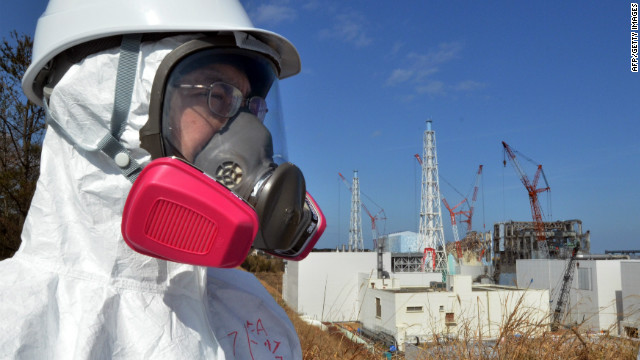
The nuclear crisis at the Fukushima Daiichi power plant in Japan was a "man-made disaster," according to a new report.
STORY HIGHLIGHTS
- Fukushima report says nuclear crisis was a "man-made disaster"
- Seijiro Takeshita: In Japan, group-binding rules are very strong
- He says individualism and top down decision-making process are often rejected
- Takeshita: Can the Japanese move away from consensus type of management?
Editor's note: Seijiro Takeshita is director of Mizuho International in London, specializing in structural transformation and organizational behavioral science of Japanese organizations.
(CNN) -- They finally called a spade a spade.
Japanese Parliament's new report on the Fukushima nuclear crisis stated that the "fundamental causes are to be found in the ingrained conventions of Japanese culture: our reflexive obedience; our reluctance to question authority; our devotion to sticking with the program." This admission exposes perhaps the weakest aspect of the Japanese governance style.
Japanese companies are known to be indecisive, always taking a long time to reach any conclusion. On the other hand, they make the world's best consumer products. How can one explain this paradox?
In the aftermath of the big earthquake last year, there was a group of 40 Japanese stranded in a building. There was no food in a freezing cold night, except for one cup of instant noodle. The 40 people calmly shared that one little cup, without any fight or quarrel. Stories like this coming out of the affected region illustrate the amazing level of collective discipline that Japanese have. It's hard to imagine the same behavior anywhere else.
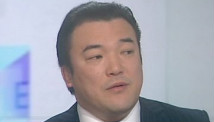 Seijiro Takeshita
Seijiro Takeshita
For the Japanese, this wasn't unusual. The reactions to such stories in Japan were along the line of: "We knew you'd hang in there, well done, we're right behind you." The Japanese are educated from a very early age to constantly "think about others" and to assess "the positing of one's self in an organizational context." Hence, solidarity within a group setting is very important. The unwritten communal rituals, value sharing and group-binding rules are so strong that they can overrule laws.
In such a culture, the leaders in Japan are often selected on a consensus basis. In other words, the leader is often the person who can best represent and voice the group's collective interests. Individualism and top-down decision-making process are often rejected, especially among traditional organizations like the government or corporations. As a result, someone who has original or different ideas is more likely to be cast out of a group. This is opposite of the top-down decision-making process that is required for the leaders in Western countries.
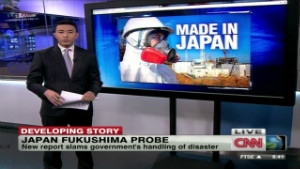 Report says Japan failed with Fukushima
Report says Japan failed with Fukushima
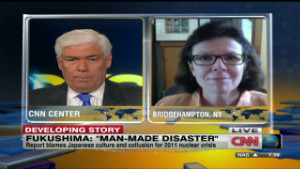 Report: Fukushima disaster man-made
Report: Fukushima disaster man-made
This consensus-based management style leads to an internal "village-like" way of doing things, usually under a closed-door policy. It breeds vested interests, which binds the leaders tighter. It is not hard to imagine that such organizational traits can easily reject third party's comments or suggestions, even if they are objective.
For example, when there was a whistleblower from TEPCO, the first call that the government made to TEPCO was: "Hey, you have a whistle blower" instead of "Hey, you might have a problem at the nuclear reactor -- look into it." This is when rationality is washed away by excessive formalities and bureaucratic rituals. Many Japanese scandals in the past have been the result of this type of behavior.
When there is no crisis, or when there is little or no paradigm change, the Japanese decision-making process is not a problem. In fact, it can even be advantageous, especially in a corporate environment. Japanese workers are extremely obedient, hard-working and loyal to their group. The corporate chief simply pushes his "automatic flight mode" and the plane will glide nicely as the mass will work hard to set the course.
However, when there is an unanticipated event like an earthquake or tsunami, Japanese leaders cannot cope well. This is equivalent to when they are asked to make a decision about crash landing. Since these leaders have been constantly opting for consensus decision-making process that is based on precedents, when there is no precedent they malfunction. Strong top-down leadership when needed is simply not there.
The statement in the Fukushima report says it all -- there is both strength and weakness to the Japanese style of management. The challenge for the Japanese is to open up to individualism and more top-down leadership while retaining collectivism to some degree.Benny Blades~"If you break down this team man for man, we have talent to compare with any team."
- Top
Comment

Comment